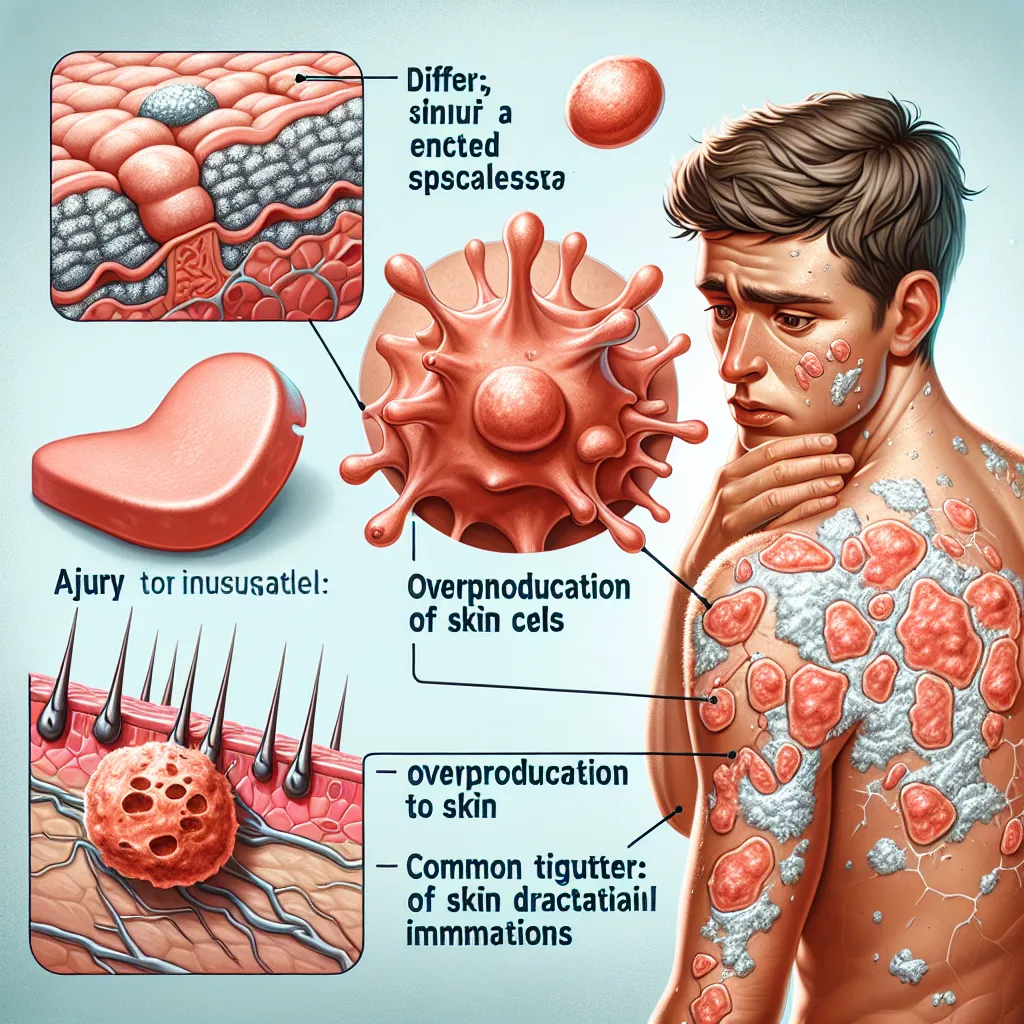What is the Main Reason for Psoriasis?
What is the Main Reason for Psoriasis?
Psoriasis is a chronic autoimmune skin condition that affects millions of people worldwide. It is characterized by red, itchy, and scaly patches on the skin, often accompanied by pain and discomfort. While the exact cause of psoriasis is still unknown, researchers have identified several factors that contribute to the development and worsening of this condition. In this article, we will explore the main reasons behind psoriasis and discuss possible triggers and risk factors.
Genetic Predisposition
One of the primary factors linked to psoriasis is genetics. Studies have shown that individuals with a family history of psoriasis are more likely to develop the condition themselves. According to the National Psoriasis Foundation, if one parent has psoriasis, the risk of their child developing it is about 10%. If both parents have psoriasis, the risk increases to approximately 50%. This suggests that certain genes play a role in determining an individual’s susceptibility to psoriasis.
Researchers have identified several specific genes associated with psoriasis, including the HLA-C gene. Variations in this gene can affect the immune system’s ability to regulate inflammation, leading to the development of psoriasis. However, having these genetic variants does not guarantee that an individual will develop psoriasis, as other factors are also involved.
Immune System Dysfunction
Psoriasis is classified as an autoimmune disease, which means that the immune system mistakenly attacks healthy cells instead of protecting the body from harmful substances. In psoriasis, immune system dysfunction leads to excessive inflammation and an accelerated skin cell production cycle.
In a healthy immune system, specialized cells called T cells help protect the body by identifying and destroying foreign invaders such as bacteria or viruses. However, in people with psoriasis, these T cells become overactive and trigger an inflammatory response in the skin. This results in the rapid growth of skin cells, leading to the formation of psoriatic plaques.
Environmental Triggers
While genetics and immune system dysfunction are key factors in psoriasis development, certain environmental triggers can also contribute to the onset or exacerbation of the condition. These triggers may vary from person to person, but common ones include:
-
Stress:
Emotional stress has been linked to the development and worsening of psoriasis. Stress can disrupt the immune system and trigger inflammatory responses, leading to psoriatic flares. -
Infections:
Certain infections, particularly streptococcal infections such as strep throat, have been associated with the onset or worsening of psoriasis. -
Injury to the skin:
Skin trauma, including cuts, burns, or even excessive scratching, can trigger the formation of psoriatic lesions in susceptible individuals. -
Medications:
Certain medications, such as nonsteroidal anti-inflammatory drugs (NSAIDs), lithium, and beta-blockers, have been reported to induce or aggravate psoriasis in some individuals. -
Smoking and alcohol:
Both smoking and excessive alcohol consumption have been linked to an increased risk of developing psoriasis and worsening its symptoms.
Other Risk Factors
In addition to genetic predisposition and environmental triggers, several other risk factors have been associated with psoriasis. These include:
-
Age:
Although psoriasis can affect individuals of any age, it most commonly develops between the ages of 15 and 35, or later between 50 and 60. -
Obesity:
Excess body weight and obesity have been linked to a higher risk of developing psoriasis and more severe symptoms. The exact mechanisms behind this association are still under investigation. -
Hormonal changes:
Fluctuations in hormone levels, particularly during puberty or menopause, can influence psoriasis development or exacerbation. -
Family history of other autoimmune diseases:
Having a family history of other autoimmune diseases, such as rheumatoid arthritis or lupus, increases the risk of developing psoriasis.
Conclusion
Psoriasis is a complex condition with multiple factors contributing to its development and progression. While the exact cause remains unknown, it is clear that genetics, immune system dysfunction, and environmental triggers all play a role. Understanding these factors can help individuals manage their condition more effectively and make informed lifestyle choices to minimize flare-ups. If you suspect you have psoriasis or are experiencing persistent skin symptoms, it is important to consult a healthcare professional for an accurate diagnosis and appropriate treatment.

